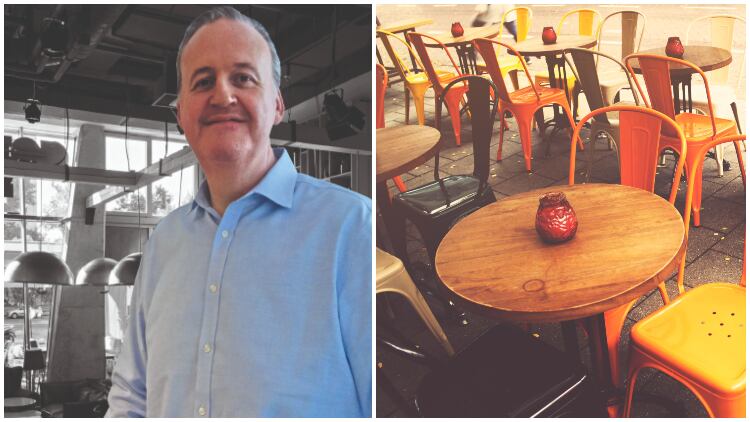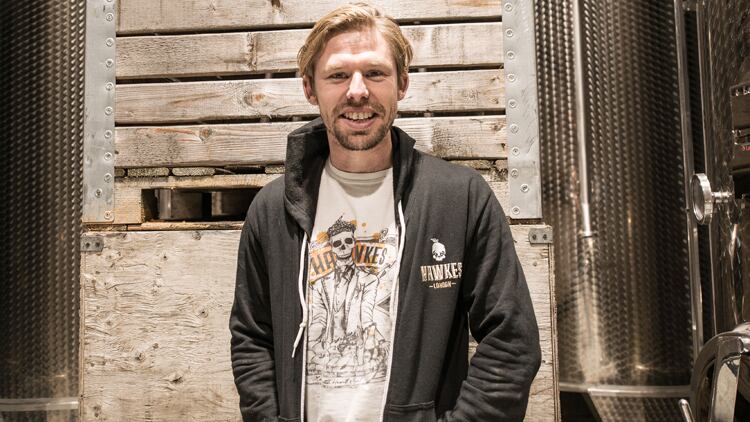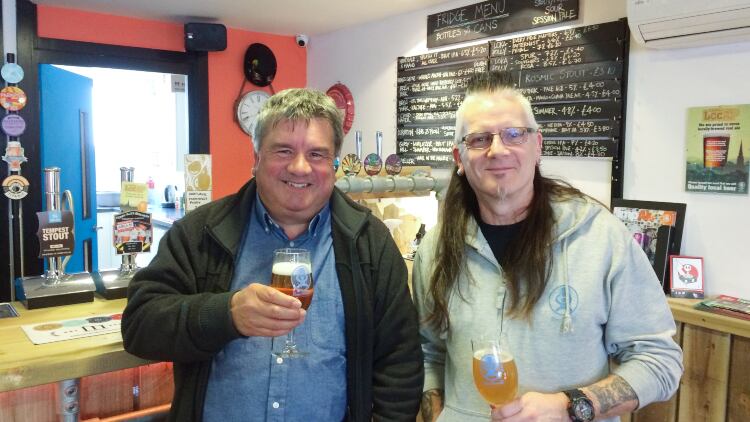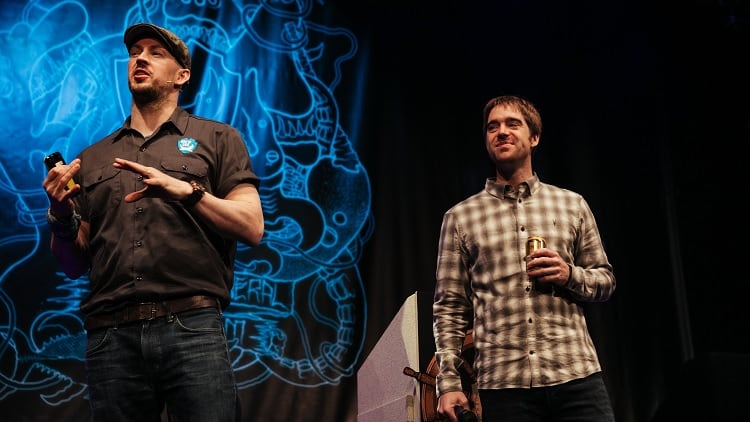Can’t live with them or can’t live without them? It is a question many in the sector no doubt ask themselves when looking into booking systems and the companies behind them, along with other worthy quandaries such as cost, relevance and return on investment.
While a booking engine may not be right for all outlets, there are advantages to using such technology other than getting bums on seats. This piece is not a sell, rather an investigation into how operators can use the information gathered by such firms to their advantage.
Kevin Stillwell has been with Bookatable for almost seven years, seeing it move from private ownership into the Michelin portfolio in 2016, following a lengthy partnership. In his current role as chief operating officer, the tech boss has privileged access to hundreds of data sets from across its global network of pubs, bars, restaurants and other outlets. This gives him an enviable vantage point on trends many could only dream of.
Pub love
I like gastropubs and where I live there are a few country pubs that have turned trendy and made their approach a wet led one. But I just love to eat out and here are some of my likes and most memorable experiences.
- Most unusual thing I’ve eaten: piranha
- Most memorable dining experience: it involved a man playing a violin before breaking out into Russian dancing, after which a handful of budgerigars were let out of a cage to fly around the restaurant
- Favourite pub: Hand & Sceptre
- Favourite city to eat out: London

Experts predict trends based on primary research, while analysts look at the number of products sold across a whole sector. Stillwell, however, can look across real-time sales data and consumer purchasing decisions to take an accurate reading of the zeitgeist, which is to say what’s really on trend.
So, what is hot right now? All will be revealed later, once we understand Bookatable’s function and Stillwell’s purpose within the business.
“I’ve been at Bookatable for six-and-a-half years and had a number of different roles during that time, before it was backed by Michelin,” he explains. “I was brought in to look at customer service and experience on both sides – from the outlet to the diner.
“That’s my background. It’s always been about customer service and experience. From there I moved on to become UK regional director for the business, responsible for the full P&L and managing all of that operational side and then I moved into chief operating officer 18 months ago across the group. So it’s been a varied career within the business.”
Bookatable extends from the UK to 10 other territories, including Denmark, Spain, Norway, France and Germany to name a few.
As part of his role, Stillwell travels to world, visiting Bookatable’s offices in each country it operates in. Until recently, this sort of role would have had very few complications but, like every other UK and European Union country, Brexit has the potential to throw a spanner in the works.
Brexit aside, however, the countries he works in have some commonalities, according to Stillwell, who says increases in the cost of food and wages are problems faced by hospitality business pretty much the world over.
“Those stresses are continuing to rise in all of the countries that we’re in and everyone wants to attract the diner with the most interesting proposition and we see that diners not only want a good deal, but they also want to have a good experience in eating out, from Michelin starred restaurants down,” he explains.
“There’s a real mix of competition out there all doing something a little different and, on one side, you have systems looking solely at systems and software, and they don’t have a consumer face for that – and then you’ve got players like us and OpenTable doing both sides of that.
“For us it’s about maximising that reach and allowing diners to have maximum choice when booking a restaurant.”
When it comes to the actual consumer, however, Bookatable is seeing a big shift towards, likely unsurprising to many in hospitality, learning about where to eat and booking by mobile.
Though this won’t unnecessarily be news to many, the transition has happened within a quick-paced space of two to three years, he explains.
In 2017, for instance, most bookings were made on computers and laptops, but now everything is on-the-go and consumers are able to make informed decisions using their mobiles.
“The other thing that we’ve noticed is consumers love to see imagery, they want to know what the food looks like and what the experience is like and what they can expect, as well as any deeper information about the menu, like sustainability. They’re becoming more passionate about these things than they were before,” he continues.
Career timeline
1987-1991 - BA in English at Exeter University
1998-2007 - Head of customer service operations (field service) EMEA at Rediffusion Media/AEI/ DMX Music/Mood Media – set up, designed and supported operations, customer service, central installations and field on-site service and FM helpdesk across the EMEA region on behalf of leading audio-visual supplier of digital music, broadcast, and software/ hardware services to B2C and other sectors; worked with clients such as P&O, Whitbread, Hilton Hotels, Starbucks & Viking.
2007-2011 - European customer service and operations director at Webloyalty International (Affinion Group) – recruited to start up and set up an approved FSA, European customer service & operations centre, for the leading online technology provider of customer engagement, loyalty/retention for businesses; working with clients such as Royal Bank of Scotland, Ticketmaster, National Express, Trainline, British Airways, Virgin, Ryanair, Argos, Airmiles and WHSmith. Programmes were subscription based memberships.
2012-present - Bookatable (part of Michelin Group) – joined in 2012 as customer service director, promoted to UK regional director in 2016 and then promoted again in 2018 to chief operating officer – responsible for central operations, customer service and success.
Fad foods peak has passed
Other trends visible from the 3,300 casual-dining venues, which includes pubs, Bookatable works with in the UK include maximised choice from the venues they visit. A consumer may not necessarily be a vegan or a vegetarian, but they want to visit somewhere that offers such options should they desire it when they are ready to order.
When an operator signs up to work with Bookatable, they can work with the company to ensure the food offer is right for their site, based on metrics and data specific to that venue. There is also a group of operators who feed back on trends to help cement the data driven by consumer purchases.
One of the most impactful pieces of research to come from Bookatable was in 2017, just as the trend of fad foods was reaching its peak. Think cronuts, townies, brooksters and duffins. If you don’t know what these are don’t worry, you’re not missing out.
But the point is that Bookatable pointed out that while consumers want choice in a pub or restaurant, it is rare they will opt for something ‘unusual’. The research in 2017 showed that two thirds of Brits would refuse to choose something out of the ordinary from a menu.
The ‘hipster’ food trend was then expected to be short-lived and arguably has been. Other than smashed avo and Buddha bowls, such wacky food trends these days rarely pass lips en masse.
Trends watch
Almost 60% of Brits cited in the research also claimed they weren’t bothered about new or alternative foods and found it troublesome to keep up with food trends, while head chefs revealed food sustainability, local sourcing and food waste would be more of a priority for consumers, in line with chefs’ needs and desires.
Ask about wider trends in the eating out market and Stillwell points towards the afternoon tea. He claims the segment is now saturated, but those succeeding have diversified their offering to include Champagne and Prosecco. However, he believes this is also becoming overdone and hints there could be more changes within the occasion.
“The other thing is street food with a lot of people wanting that at a dining-in experience. They want menus to reflect that and be relevant,” adds Stillwell.
“The other area is dietary; you’re either gluten-free, lactose intolerant or have a nut allergy. A lot of this is a focus now and we’re seeing dietary requirements are becoming a bigger part of menus.
“Another is sustainability, people want to know what they’re eating and what’s in their food and where it’s come from.”
In terms of trends that have dipped over the past few years, Stillwell believes there is a distinct lack of brand loyalty from consumers. “It’s really dropped off, people want to change and have a wider choice of food available and they don’t want to keep dining at the same place every week with the same menu, it’s not the thing to do anymore.
“They are less loyal to one brand and they want to see new things and try new things, they want to experience something different.”
Such a statement rings true, especially in light of struggles within the branded all-day dining and casual-dining space – the demise of the Jamie Oliver restaurant chain being a recent example.
However, while there is a chink in the recent success of restaurant chains, it doesn’t full leave an open space for independents to move easily into, he adds. “I think this is two fold, it’s an opportunity for the independent sector to develop, but also in the casual-dining sector, it’s around being different.
“They [casual-dining chains] are changing the way they are operating and changing what the customer sees.
“A lot of it is around pasta and pizza, and a lot of the operators are changing it because the competition is so advanced. It has to be compelling.
There’s an opportunity for independents, but also an opportunity for casual dining to grow,” he concludes rather diplomatically. The ultimate way to secure the attention of consumers’ bellies is through, as preached in the pages of this magazine and many others relentlessly, experience.
“People want that experience,” Stillwell continues.
“People like to do their research and they like to understand where they’re going – they’re not that spontaneous. People want to see what’s available and understand what’s there. There will always be those diners who are booking on the fly but, ultimately, they want an experience and the security that their planning and decisions will deliver on that.”
Delivering the USP
What can be gleaned from the conversation is the certainty that consumers are as fickle as ever before. Yet, in the same breath, they are committed. Their capricious nature is driven by a desire to try new things and have ‘experiences’, yet their commitment follows the detailed research they undertake before deciding which venue to patronise.
As always, there’s no easy way to success in this industry, but layering up as many pulling points around your business as possible is likely to set the venue aside from others and, hopefully, bring in the punters.




